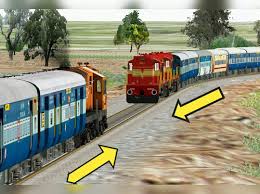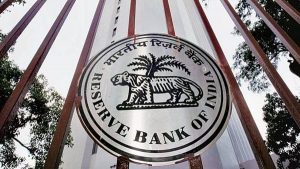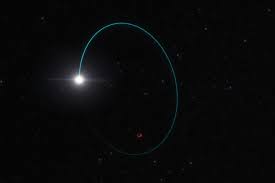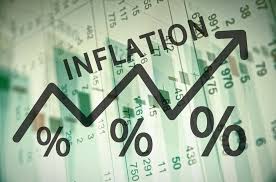Today’s Current Affairs: 18th April 2024 for UPSC IAS exams, State PSC exams, SSC CGL, State SSC, RRB, Railways, Banking Exam & IBPS, etc
Table of Contents
Kavach Anti-Collision System : Appreciation

The Supreme Court appreciates steps taken by Railways to roll out Kavach anti-collision system.
- The KAVACH is an indigenously developed Automatic Train Protection (ATP) system by the Research Design and Standards Organisation (RDSO) in collaboration with the Indian industry.
- It is a state-of-the-art electronic system with Safety Integrity Level-4 (SIL-4) standards. It makes use of high frequency radio communication and operates on the principle of continuous update of movement to prevent collisions
- It is meant to provide protection by preventing trains to pass the signal at Red (which marks danger) and avoid collision.
- It activates the train’s braking system automatically if the driver fails to control the train as per speed restrictions.
- It also providing support for train operations during adverse weather conditions such as dense fog.
- It works on the principle of continuous update of Movement authority.
- It actively uses the SOS to prevent any kind of mishap and accidents.
Jhelum River : Six Persons Died

At least six persons have died after a boat capsized in the Jhelum river on the outskirts of Srinagar city.
- Jhelum river is a tributary of the Indus River that flows in India and Pakistan.
- It is the main waterway of the Kashmir valley.
- It constitutes the westernmost of the five rivers of the Punjab region that merge with the Indus River in eastern Pakistan. Mangla Dam has been built on the river.
- It rises from its chief source Verinag at the foothills of Pir Panjal ranges in Jammu and Kashmir.
- The largest tributary of the Jhelum is the Kishenganga (Neelum) River, which joins near Muzaffarabad and enters the Punjab province, Pakistan.
Sovereign Green Bonds : Study

The Reserve Bank of India (RBI) recently green-lighted investments in the country’s Sovereign Green Bonds (SGrBs) by Foreign Institutional Investors (FIIS).
- A green bond is a debt security that is issued to raise capital to support climate-related or environmental projects, according to the World Bank.
- SGBs are issued by governments to raise resources for such projects.
- In India, the Union Budget 2022-23 announced the issue of SGrBs.
- The government’s framework is based on the International Capital Market Association’s (ICMA) listed principles for issuing green bonds, which has four components:
- Use of proceeds, project evaluation and selection, management of proceeds and reporting.
- The government said the bonds’ proceeds will be used for green projects that:
- Encourage energy efficiency
- Reduce carbon emissions and greenhouse gases
- Promote climate resilience and/or adaptation
- Improve natural ecosystems and biodiversity, especially in accordance with the principles of sustainable development goals
- The framework listed investments in solar, wind, biomass and hydro energy projects, and urban mass transportation projects such as metro rail, green buildings, pollution prevention and control projects.
- The government excluded projects such as fossil fuels, nuclear power generation and direct waste incineration.
- The eligible expenditure is limited to government spending that occurred not more than 12 months prior to issuance. The proceeds should be allocated to projects within 24 months of issuing the bonds.
- If an eligible green project is postponed or cancelled, it will be replaced by another eligible green project.
Gaia-BH3 : Black Hole

Astronomers spotted the most massive known stellar black hole in the Milky Way galaxy named Gaia-BH3.
- Gaia-BH3 is the most massive stellar black hole yet discovered in the Milky Way galaxy.
- It was spotted in data from the European Space Agency’s Gaia mission because it imposes an odd ‘wobbling’ motion on the companion star orbiting it.
- The researchers used the European Southern Observatory’s Very Large Telescope in Chile’s Atacama Desert and other ground-based observatories to confirm the mass of Gaia BH3.
- It has a mass that is nearly 33 times that of our sun, and it’s located 1,926 light-years away in the Aquila constellation, making it the second-closest known black hole to Earth.
- The closest black hole is Gaia BH1, which is located about 1,500 light-years away and has a mass that is nearly 10 times that of our sun.
- The title for the most massive black hole in our galaxy will always belong to Sagittarius A*, the supermassive black hole located at the center of the Milky Way, which has about 4 million times the mass of the sun, but that is because it’s a supermassive black hole, rather than a stellar black hole.
- Stellar-mass black holes are formed from the gravitational collapse of a single star or from the merger of two neutron stars. Therefore, they have masses similar to the masses of stars.
Imported Inflation : ADB Warning

The Asian Development Bank recently warned that India could face imported inflation as the rupee could depreciate amid the rise in interest rates in the West.
- Imported Inflation is a general and sustainable price increase due to an increase in the costs of imported products.
- This price increase concerns the price of raw materials and all imported products or services used by companies in a country.
- It is also referred to as cost inflation.
- Several factors cause imported inflation:
- The more the currency depreciates on the foreign exchange market, the higher the price of imports. Effectively, more money is needed to buy goods and services outside the country.
- When commodity prices rise globally, it directly impacts the cost of imports and can lead to higher inflation in the importing country.
- Changes in trade policies, such as tariffs and quotas, can influence the cost of imported goods.
- Fluctuations in transportation costs, influenced by factors like fuel prices and logistical challenges, can affect the final cost of imported goods.
- With imported inflation, production costs are higher for companies. These companies most often reflect this increase in the selling price of the goods and services sold. As a result, prices within the country rise.
Tool-Using Fish Species Found In The Laccadive Sea:

Three fish species that live in the Laccadive Sea off the southwest corner of the Indian coast, capable of using tools, were recently found.
- Laccadive Sea also known as the Lakshadweep Sea, it is a body of water bordering India, the Maldives and Sri Lanka.
- It Boundaries to its south, the Lakshadweep Sea touches the Nine Degree Channel.,to its west, it meets the larger Indian Ocean that it is also a part of. to the north, the Lakshadweep Sea meets the Arabian Sea (also part of the Indian Ocean), while to the northeast, it borders the Kerala state of India.
- Along the more southern eastern portion of the Lakshadweep Sea, it meets the Maldives islands and Sri Lanka.
- The Lakshadweep Sea is only half as deep as the average depth of the entire Indian Ocean. This warm sea has a stable water temperature throughout the year and is rich in marine life.
- Major cities along its shores include Trivandrum and Kochi in India, Quilon and Colombo in Sri Lanka and Malé in the Maldives.
Erez crossing : Israel And northern Gaza

Israel has reopened the Erez crossing between Israel and northern Gaza for the first time since the October 7 Hamas attacks to allow more aid to Gaza.
- Erez (or Beit Hanoon) is located in the north of the Gaza Strip. It was the main crossing for the movement of people between Israel and Gaza.
- It is primarily a pedestrian crossing but can also be used for road supplies.
- Movement through all of Israel’s crossings with Gaza was already heavily restricted before the war, as Israel imposed a blockade of the territory with Egypt 17 years ago.
- The only crossings currently operational are the Rafah crossing with Egypt and Kerem Shalom with Israel.
- Hamas is a Palestinian political armed group that was founded in 1987. It’s a militant group that emerged as a resistance movement against Israeli occupation.
World’s First ‘Miss AI’ Beauty Pageant:

The World AI Creator Awards (WAICAs) has announced the world’s first ‘Miss AI’ beauty pageant, featuring AI-generated models competing in a unique event that blends traditional beauty pageantry with the world of AI creators.
- Contestants will be judged on beauty, tech, and social media influence, with a focus on their use of AI tools to craft digital artwork.
- The winner of ‘Miss AI’ will receive a $5,000 cash prize, promotion on the Fanvue platform, a mentorship program valued at $3,000, and PR support worth over $5,000.
- Entrants must be entirely AI-generated, with no restrictions on the tools used.
- The judging panel includes two AI-generated judges, Aitana Lopez and Emily Pellegrini, as well as two humans: Andrew Bloch, an entrepreneur and PR adviser, and Sally-Ann Fawcett, a beauty pageant expert and author.
- Entries were accepted starting from April 14, and the winners will be announced on May 10, followed by an online awards ceremony later in the month.
- The competition aims to highlight the capabilities of AI in the fashion and beauty industry, showcasing the potential for technology to enhance creativity and innovation in these fields.
Ashwagandha : Benefits

Ashwagandha is gaining global attention and popularity for its numerous health benefits.
- Scientific research highlights its potential in stress management, cognitive function, physical performance, and more.
ASHWAGANDHA (WITHANIA SOMNIFERA):
- Ashwagandha (Withania somnifera), also known as Indian ginseng or winter cherry, is a prominent herb in Ayurveda, the traditional medicine system of India.
- It is renowned for its adaptogenic properties, which help the body manage stress.
Benefits and Uses of Ashwagandha:
- Stress and Anxiety Reduction: Ashwagandha may lower cortisol levels and mitigate stress and anxiety symptoms.
- Athletic Performance: It could potentially enhance physical performance and strength.
- Cognitive Function: There’s evidence suggesting it may improve memory and brain function.
- Anti-inflammatory Effects: Withanolides in Ashwagandha have anti-inflammatory properties.
- Sleep Improvement: Some studies indicate it may help improve sleep quality.
Special Rupee Vostro Account:

The Indian government has simplified the payment mechanism for traders importing pulses from Myanmar by implementing the Rupee/Kyat direct payment system through the Special Rupee Vostro Account (SRVA) via Punjab National Bank.
- This move aims to streamline trade transactions and enhance efficiency.
- India heavily relies on imports of pulses, including tur and urad dals, from Myanmar to meet domestic demand.
- Special Rupee Vostro Account (SRVA) is an account that domestic banks hold for foreign banks in the former’s domestic currency, which, in this case, is the Indian Rupee (INR).
- It allows domestic banks to provide international banking services to their clients who have global banking needs without physically being present abroad.
- The Reserve Bank of India (RBI) introduced the SRVA mechanism to settle international transactions in rupees.
- The primary objectives were to promote the growth of global trade, emphasize Indian exports, and position the rupee as an international currency.
- SRVA facilitates smoother trade between India and other nations, including those facing sanctions (e.g., Russia).
- By using INR, both parties avoid currency fluctuations and associated risks.
- Eliminating the need for multiple currency conversions saves costs for businesses.
Key Components of SRVA:
- All exports and imports must be denominated and invoiced in Indian National Rupee (INR).
- The exchange rate between the currencies of the trading partner countries is market-determined.
- The ultimate settlement also takes place in INR.
Lata Deenanath Mangeshkar Award 2024:

Amitabh Bachchan will be honoured with the Lata Deenanath Mangeshkar award on April 24, 2024.
- Lata Mangeshkar family instituted the award in memory of the late legendary singer Lata Mangeshkar, who passed away on February 6, 2022.
- The Lata Deenanath Mangeshkar award, also known as the Lata Deenanath Mangeshkar Puraskar, is a prestigious honor instituted and trust in memory of the legendary Indian singer Lata Mangeshkar.
- The award recognizes individuals who have made path-breaking contributions to the nation, its people, and society. It is presented annually on April 24, the memorial day of Lata Mangeshkar’s father and theatre-music veteran Deenanath Mangeshkar.




